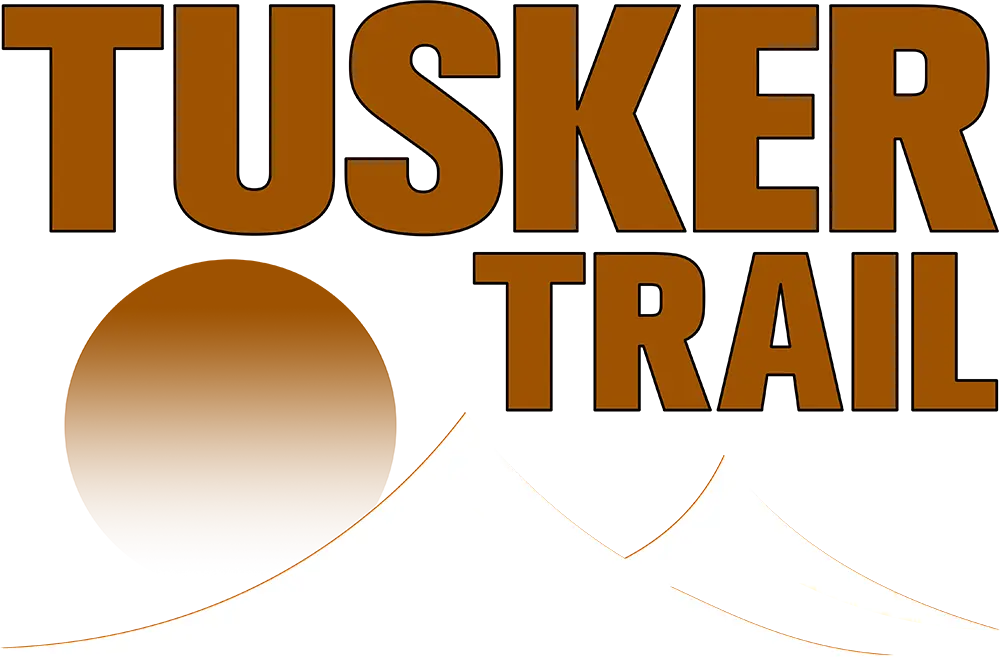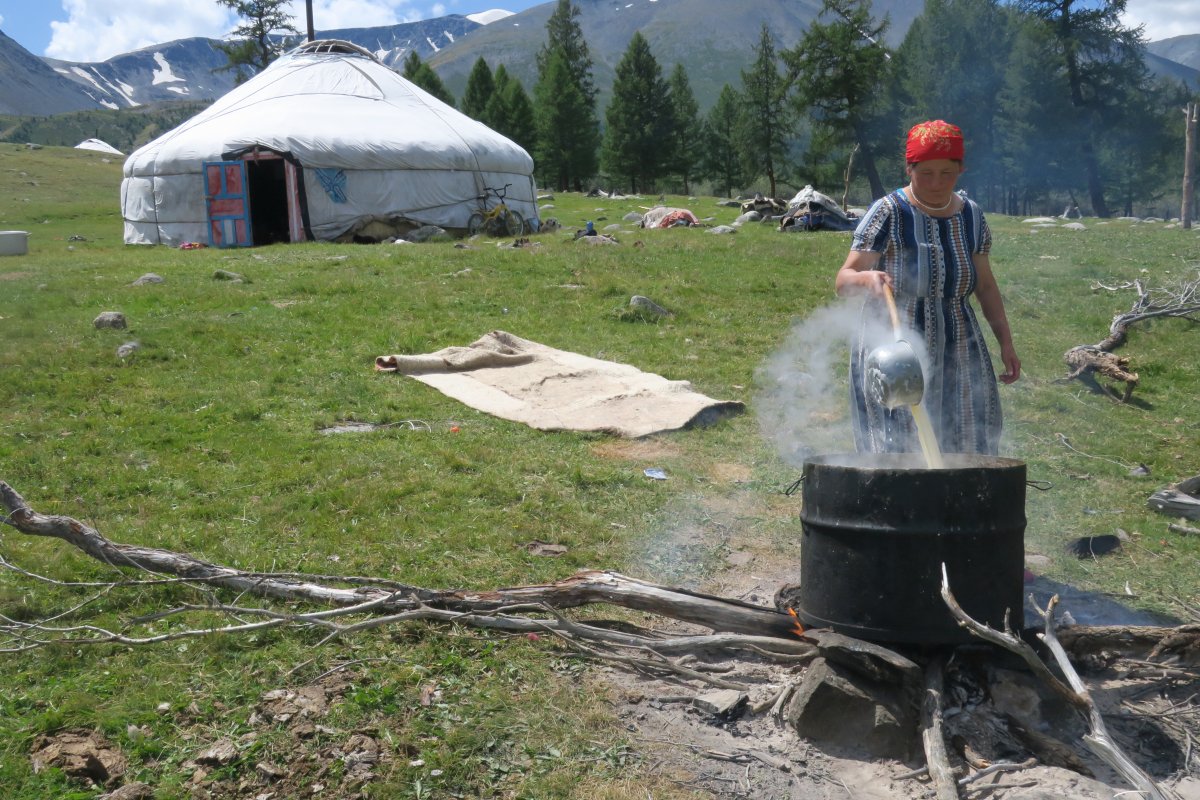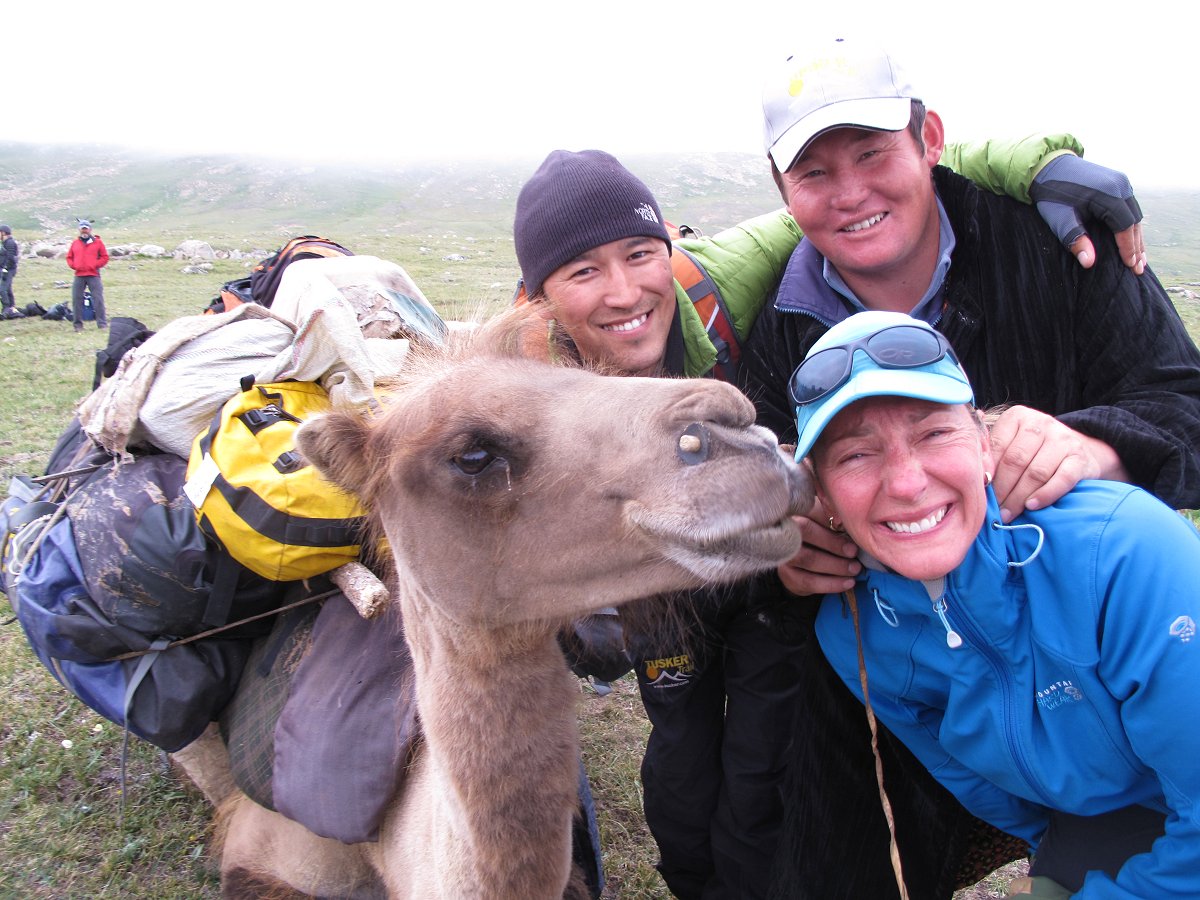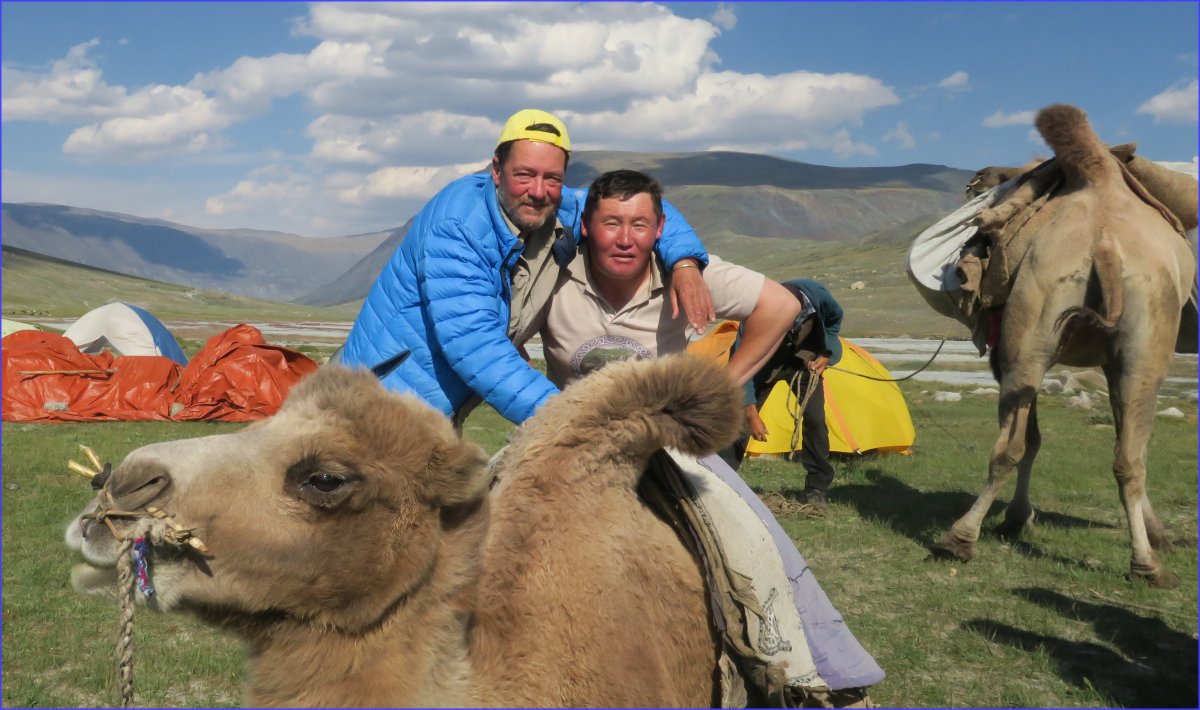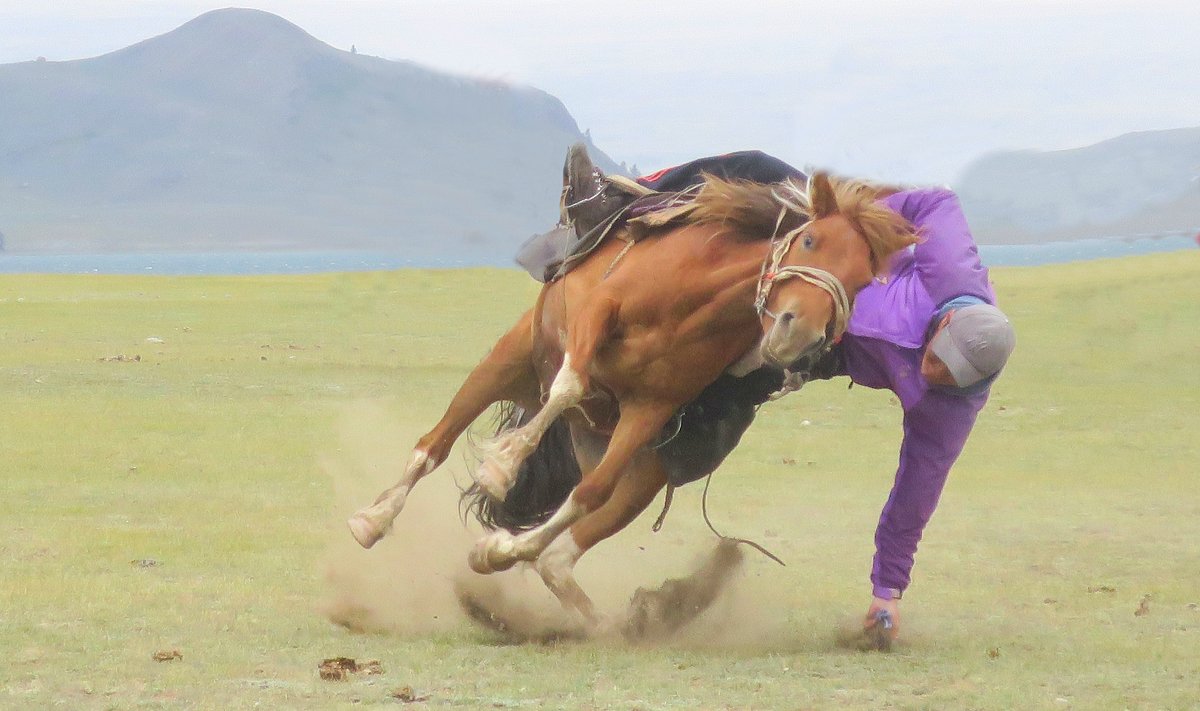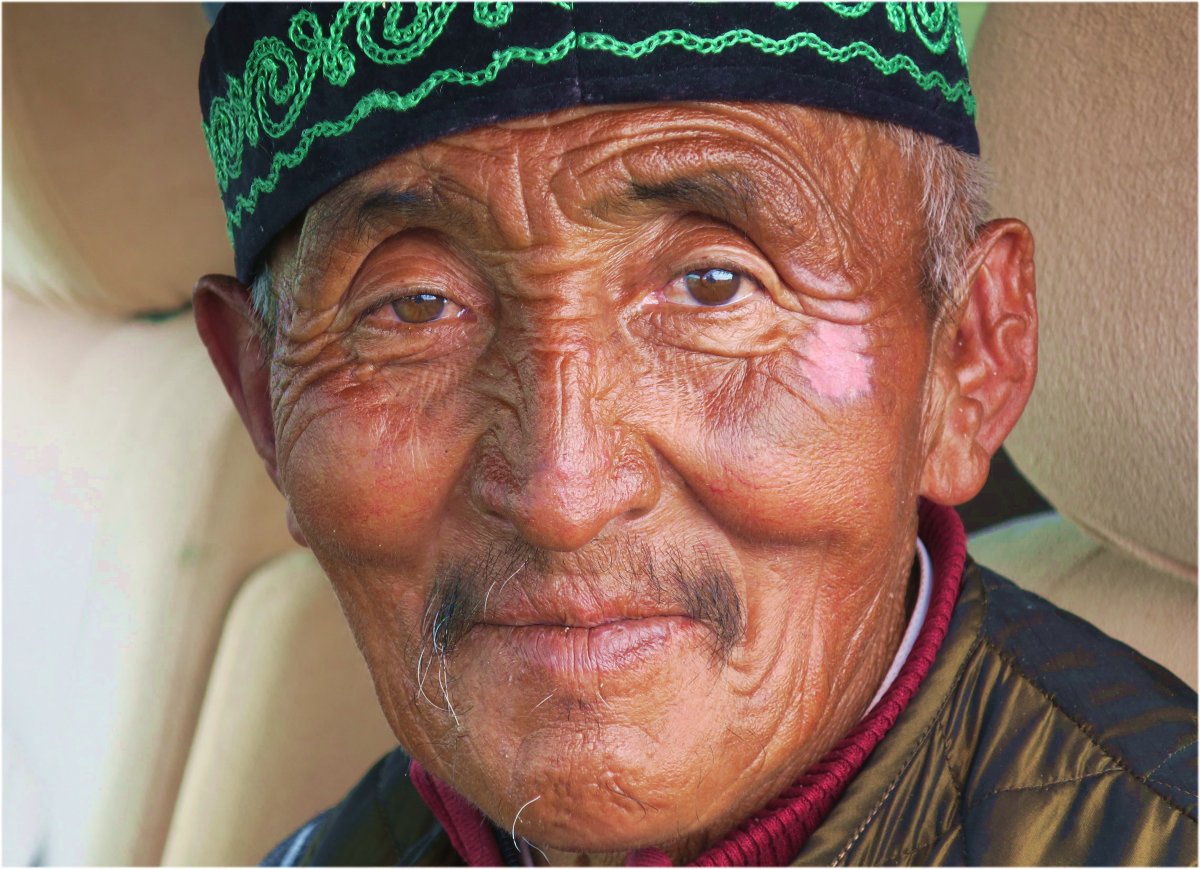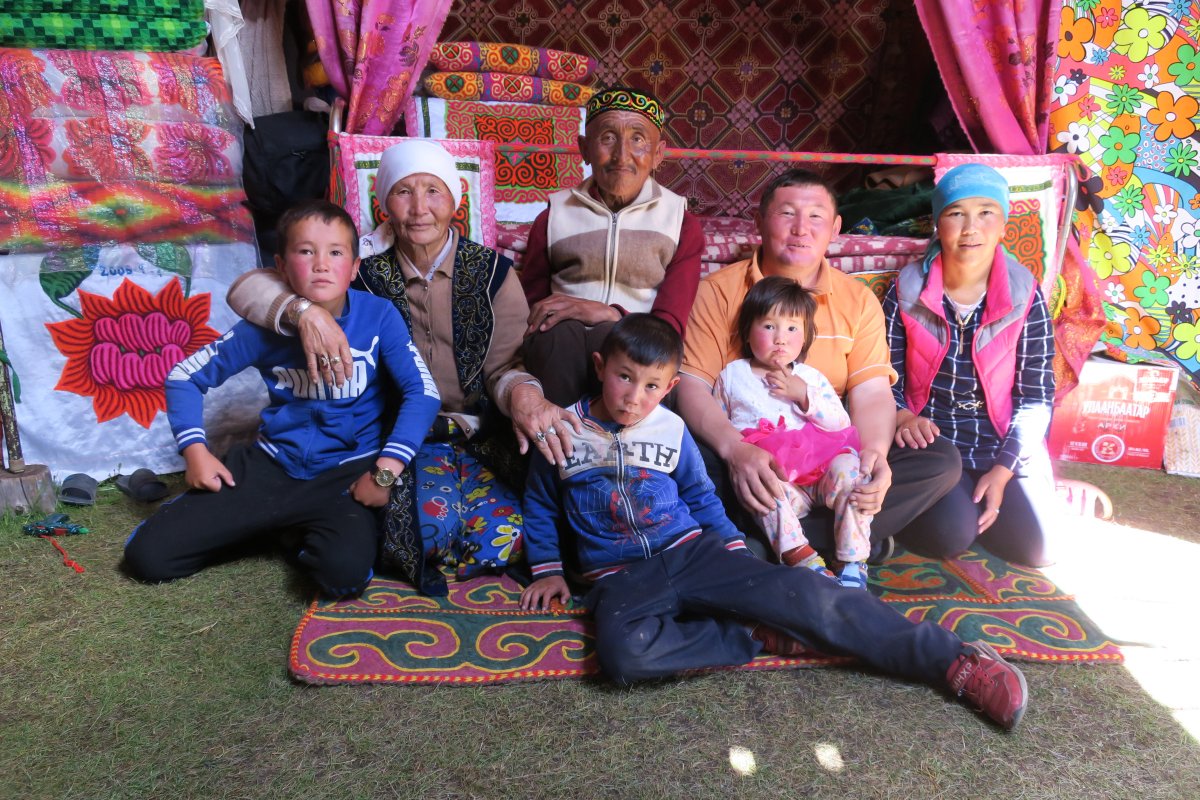In 2005, Amy and I embarked on an adventure that changed our lives forever. We discovered the heart of Mongolia. I couldn’t help but feel as though we drifted onto another planet. And certainly, Mongolia is a world apart in many ways.
Throughout the country, amidst the nomads, relationships are founded upon the bedrock of familial ties or shared purpose. Over nearly two decades, we have managed to forge a common purpose with a nomadic family in Mongolia’s far west, not far from the Chinese border.
During this first visit, by sheer chance, we met Dosjan, a young local guide, in the remote town of Ulgii. His fluency in English, a rarity at that time, proved invaluable. Dosjan became our gateway to the enchanting Altai Tavn Bogd, a place that has seeped into my very being. It stands as one of the most magical places I have ever traveled through. Dosjan, a young man in his early twenties and recently married, introduced us to his extended family residing in GERS, Mongolia word for the nomad felt-lined tents more commonly known in Russian as YURTS in our world.
Since that momentous meeting, Amy and I have led many groups on our Mongolia Nomad Trek, on foot and horseback through the captivating Altai mountains. The allure of this place never wanes.
To our amazement, and over a few years a bond formed between us and Dosjan’s extended nomadic family, who play an integral part of our treks. While we guided the treks, and brought our own gear, the nomad family, led by the silent yet resilient Karbai and a few members of his clan, managed the animals—thirty horses and a dozen camels—that carried our belongings from camp to camp.
During our second year, Dosjan and his wife Rauka welcomed their first child, Miras, into the world. Born during a trek, Miras was lovingly dubbed “Little Eddie” by his proud grandfather. Now, at the age of fifteen, Miras will join me as a camp assistant during the summer treks, a testament to the enduring bonds we have formed.
Dosjan’s brother, Adda, also had two children—Anuka, the eldest, and Naartai, her younger brother. Over the years, they have come along on the trip during the summer months, becoming like beloved nieces and nephews. Their families have embraced me as one of their own, as I witnessed their remarkable transformation into young adults.
In Mongolia and among the Kazakhs, horsemanship is a way of life. Anuka, however, stood apart. Despite recently qualifying as a dentist, then getting married and now expecting her first child, Anuka had never learned to ride. It fell upon me—an African-born American—to teach her, a delightful irony given the equestrian heritage of these lands spanning 4,000 years.
Around our second year, Karbai, now the patriarch of his nomadic clan, also got married His eldest son, Ramazani, now sixteen, accompanies us on our treks, transforming the journey into a full-on family affair.
Bilimkan, Karbai’s father, and I were the same age. This created an unspoken bond between us. In fact, my nickname in the area is “Shal,” which means “grandfather,” as I’m older and have a beard. As the eldest of the clan, we earned the respect of the younger generation. However, six years ago, Bilimkan passed away, leaving a void in the hearts of his family, which included us. In a gesture of profound generosity, Karbai presented me with his father’s traditional Kazakh riding whip.
The warmth emanating from Dosjan, Karbai, and their families is like nothing I’ve experienced anywhere on earth, except from my own family. And when I ask my groups after the trek what moved them most during their trek through paradise, they don’t say the amazing landscapes, the sprawling mountain ranges, idyllic lakes, raging rivers, and tranquil glaciers. They talk about the genuine warmth of total strangers, and their large nomadic hearts.
Amy and I have observed a fascinating facet of their lives. In the West, pleasantries such as “please” and “thank you” permeate our daily interactions back at home. Yet, in the nomadic world, where survival hinges on the collective support of the community and temperatures plunge to sixty degrees below freezing, such formalities are scarce. When seeking shelter during a grueling journey or assistance of any kind, the help is expected and provided without hesitation. The word “no” holds little power in this realm. It is a unique aspect of the “nomad heart,” a sense of kinship that transcends even familial bonds. To be part of this world feels like traveling over a distant planet, where the magic of selfless generosity is the currency of life.
Tomorrow, I embark on a seven-week journey through this extraordinary land.
Here are few short films I made of what it’s like trekking in this magical faraway place.
Tusker Mongolia Nomad Trek – Ep. 1
Tusker Mongolia Nomad Trek – Ep. 2
Tusker Mongolia Nomad Trek – Ep. 3
Until we meet again.
Eddie Frank

